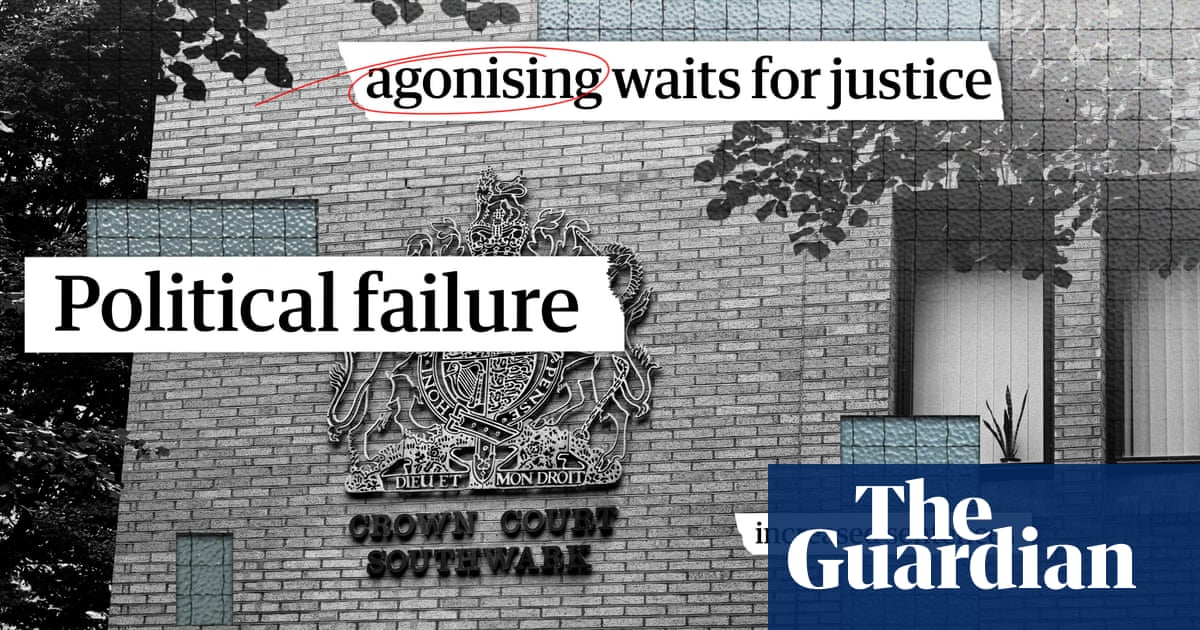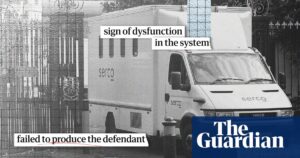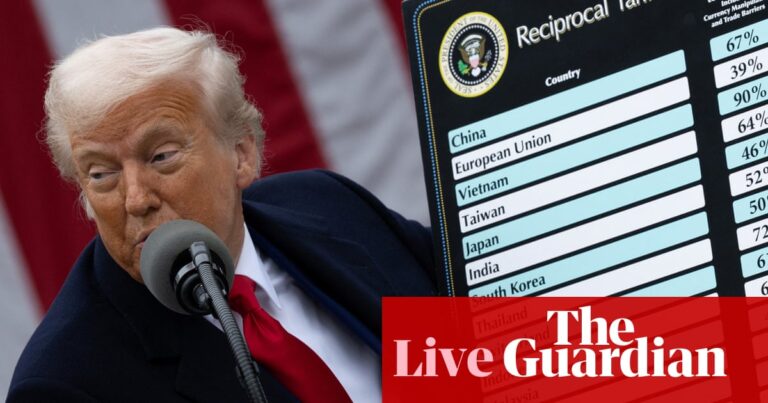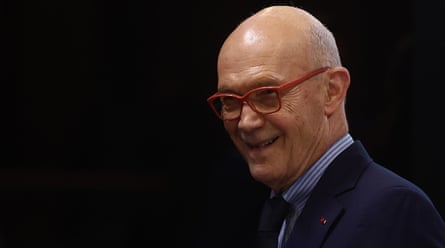
Ministers should consider abandoning jury trials for some crown court cases unless they properly fund a justice system “in serious crisis”, the former lord chief justice has said.
Lord Thomas said there had been a “political failure” by successive governments to invest in justice or make the difficult decisions needed to protect it.
The crown court backlog in England and Wales will hit 100,000 without radical action, and record delays mean that new trials are routinely being fixed for 2027. The situation is putting victims of crime through agonising waits for justice, while the accused wait years – sometimes in prison – for trial.
“You have to accept that if you want to keep the jury trial, you have to pay for it,” Thomas said. “It’s a choice, and a choice politicians are very reluctant to make. Do you make a major reform, or do you provide more money?”
Criminal trials with juries of 12 members, who are drawn from the public and asked to decide whether someone is guilty beyond reasonable doubt, are standard in England and Wales’s 70-plus crown courts, which hear the most serious cases.
Thomas, who was head of the judiciary in England and Wales from 2013 to 2017, suggested that less serious crown court cases may have to be decided by a judge or magistrates to save money.
An “intermediate” court – between magistrates and crown courts – for moderately serious cases might be a solution if politicians were not prepared to invest the necessary resources to reduce the crown courts backlog, he said.
“Is it right we should have jury trials for all these cases, or should we have this intermediate court staffed by a district judge and two magistrates?” he asked.
The idea was proposed in 2001 by the former appeal court judge Sir Robin Auld but was not properly considered, Thomas said.
Auld’s proposal led to outrage at the time because it would remove the right to trial by jury. Thomas added: “The general view has been: ‘No, a person is entitled to trial by jury,’ but if you are to have trial by jury, you’ve got to pay for it.”
He said the proposal was not the only solution but that there had been “a failure to think through: have we got the most efficient system?”
Thomas said politicians had created problems by inflating jail sentences without putting in extra money to cover the cost of a rising prison population.
He said: “There are two parts of the system in serious crisis: one is the delays in getting people to trial and secondly the problems in the prisons.”
Previous Labour and Conservative governments have increased sentences through legislation as part of a push to be perceived as tough on crime. Watchdogs have highlighted major funding shortfalls for court staff and buildings, while criminal lawyers have seen a 43% legal aid pay cut in real terms over a decade, according to a 2021 report.
Thomas said: “Good justice in courts requires a good system of remunerating the prosecutors and, above all, the defence counsel … and you’ve got to have sufficient courts and sufficient funding for the courts to be able to sit regularly.”
He added: “What you can’t do is leave a backlog. It’s just inefficient. And my own view is that successive governments have not been prepared to provide the necessary funding.
“And you can’t say, well, the courts ought to have more sitting days without actually realising you also need attractive legal aid. And then you’ve got to be sure, if you want to speed the system up, that you’ve got prison places.”
Thomas said the impact of sentence inflation on the wider justice system was “entirely foreseeable” but that “no one was prepared to do anything about it”. He said that despite Ministry of Justice (MoJ) forecasts predicting the pressure on prisons and the resulting cost, “people have refused to be real”.
Average jail times have soared over the last decade, with the number of life-sentence prisoners serving a minimum term of more than 20 years more than doubling in that time.
Thomas said: “The problem of the justice system, as I think most people will accept, is it’s not an area that competes easily for money, and so there’s been a willingness to be tough and magnify the number of sentences, do all sorts of things, without being prepared to provide the requisite funding. And that’s really a question of political failure of those in charge to say bluntly: ‘You can’t do this unless you’re prepared to put more money into the system.’”
While Thomas thought an intermediate court might reduce the pressure on crown court lists, he also said the situation was so dire that the justice system would need more money regardless. “We’ve got ourselves into a dilemma that can only be solved by greater funding,” he said.
Thomas was one of four former lord chief justices to publish a paper in September calling for sentencing reform.
A spokesperson for the MoJ said: “The new government inherited a record and rising crown court backlog, delaying and denying justice for far too many victims.
“While we are bound by our financial inheritance, we are committed to bearing down on the crown court backlog. As first steps, we have increased the number of days the court can hear cases to 106,500 and extended magistrates court sentencing powers from six to 12 months, freeing up 2,000 days so courts can handle the most serious cases. The government is exploring further options to deliver swifter justice in our courts.”
Source: theguardian.com


















